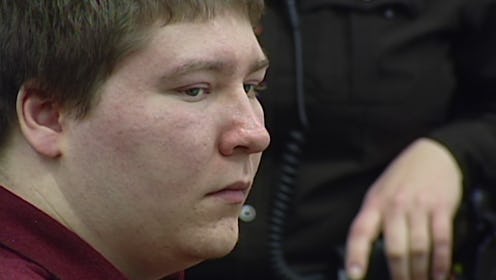News
New 'Making a Murderer' Development

On Friday, Wisconsin's Attorney General appealed the overturned conviction of Brendan Dassey, one of the key figures in Netflix's immensely popular Making a Murderer series. In 2007, Dassey was convicted of first-degree homicide, second-degree sexual assault, and mutilation of a corpse in connection with the 2005 killing of Teresa Halbach. However, his attorneys argued that his confession was coerced, and in August, a federal magistrate judge overturned Dassey's conviction and ordered him released within 90 days. The Wisconsin Attorney General's office is now appealing that decision, arguing that Dassey's initial convictions were sound and that he should remain behind bars.
“We believe the magistrate judge’s decision that Brendan Dassey’s confession was coerced by investigators, and that no reasonable court could have concluded otherwise, is wrong on the facts and wrong on the law,” Wisconsin Attorney General Brad Schimel said in a press release. “Two state courts carefully examined the evidence and properly concluded that Brendan Dassey’s confession to sexually assaulting and murdering Teresa Halbach with his uncle, Steven Avery, was voluntary, and the investigators did not use constitutionally impermissible tactics.”
Making a Murderer is largely centered on Steven Avery, who was also convicted of murdering Halbach, but Dassey, Avery's nephew, was a crucial figure in the trial as well. Although Dassey told investigators that he was complicit in the murder, the Netflix series cast serious doubt on the validity of his confession on numerous counts. The show doesn't take an official position, but it's suggested that Dassey, who had an IQ of 76 at the time of his interrogation, did not fully understand what was going on, and was both deceived by investigators and inadequately served by Len Kachinsky, his previous attorney.
Federal Magistrate Judge William Duffin agreed, and in August, overturned Dassey's conviction.
"The investigators repeatedly claimed to already know what happened on [the day of the murder] and assured Dassey that he had nothing to worry about," Duffin wrote. "These repeated false promises, when considered in conjunction with all relevant factors, most especially Dassey's age, intellectual deficits, and the absence of a supportive adult, rendered Dassey's confession involuntary under the Fifth and Fourteenth Amendments [of the U.S. Constitution]."
Duffin ordered Dassey released within 90 days unless the state appealed the decision. Now, the state has appealed, and Dassey's fate is in the hands of the courts once again.
Image: Netflix (1)